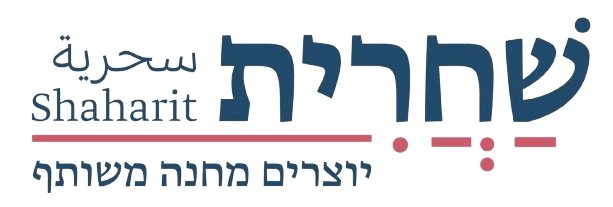[pdf-embedder url=”https://www.shaharit.org.il/wp-content/uploads/2014/09/Haredi-Survey-Powerpoint.pdf” title=”Haredi Survey Powerpoint”]
Conservatism and Integration
The Survey
Shaharit is an organization that aims to create a common denominator between all the groups in Israeli society to create a sustainable future in which every community can thrive. In order to achieve this goal, the organization seeks to create a collection of data that will provide a precise and sensitive characterization of the Israeli population that describes each population group in ways that go far beyond the accepted stereotypical view. This is the first in a series of surveys that will be conducted on sectors within Israeli society; it was conducted on the Haredi (ultra-Orthodox) community in Israel which is seen, at least according to the stereotypes that are widespread in the non-Haredi community, as an extremely homogeneous community.
The study presented herein was conducted by Dr. Arie Rotem from TRI Strategic Research during November 2013 at Shaharit’s initiative. The survey’s goals were: characterizing Haredi society while surveying central values and interests and segmenting Haredi society along psychographic and sociological lines.
Survey respondents were asked to note the degree to which they agreed with a variety of statements of attitudes. The first section of the data analysis consisted of “consensus analyses” that examined respondents’ answers and noted the averages and standard deviations. This process was meant to identify the variables around which there is a high degree of agreement and which can be seen as those that define most or all of the Haredi community, in contrast to those with a high degree of variability and point to a diversity of opinion, which serves as a good basis for segmentation.
In order to meet the study’s goals, the research preparation stage included several meetings with a steering committee composed mostly of Haredim. At this stage, the group identified items that characterize social and cultural patterns, values, and key issues in Haredi society. The questionnaire was constructed mostly around psychographic statements that were based on the items that were identified in the first stage. The data were collected through telephone interviews with 1,181 Haredi respondents ages 18 and up during November 2013. The maximum sampling error for this survey is ±2.9%.
Results:
Haredi Education: The statement that had the highest rate of agreement dealt with the view that Haredi education provides the best preparation for life. This finding means that the importance and quality of Haredi education is unequivocally important to nearly all Haredim. Perhaps understanding the extent to which Haredi education is important to this group will help mediate between the Haredi sector and non-Haredim who try to influence Haredi education with the (sometimes reasonable) aim of providing better preparation for life. The power of this response demands tactical consideration of how to get this population to give in somewhat on an issue that is, apparently, one of its most closely-guarded values. Additional variables that we identified as important based on a high level of agreement relate to obeying rabbinical dicta, the role of Haredi society as preservers of Judaism, and a desire for a theocracy. According to the survey results, these values are the foundation of Haredi society in Israel.
Integration into the workforce: Half of the respondents support integration into the workforce. Relatively speaking, the “Lithuanians” are less interested than other Haredim in joining the workforce. It is worth mentioning in this context that approximately 75% of respondents believed financial stability to be important. Men, Hassidim, and Mizrahim agreed with this statement to a higher extent than other groups. About one-third of respondents noted that they would be happy to see more Haredim studying in academic institution of higher education, while one-half of the respondents were in opposition.
Integrating into the State: There was a high degree of variability in responses to statements regarding integration into the State, which suggests that this issue is far less a matter of consensus than generally thought.
Identifying with the State: More than one-third of respondents expressed their identification with the State of Israel, while a similar percentage does not identify with the State. Relatively speaking, men, Mizrahim, and Hasidim identify with the State to a higher degree than do other groups. It is interesting to note that young people ages 18–24 expressed a relatively lower level of identification with the State, perhaps because they are around the age for military conscription. Nonetheless, more than half the respondents noted that they do not feel disconnected from life in Israel. In this case, too, younger respondents felt relatively more disconnected from life in Israel.
IDF service: More than one-third of the respondents expressed support for drafting young Haredim who are not studying in yeshiva, with men, Mizrahim, and those above 45 expressed a higher degree of support than other groups. Hasidim are relatively less supportive of the draft for young Haredim than others.
Maintaining a Haredi lifestyle: The survey results emphasize that a significant portion of Haredi society is interested in maintaining a Haredi lifestyle especially as it applies to education, family life, and relationships. Regarding education, we found that less than one-third of respondents wanted their children to study solely religious subjects while more than half prefer that their children study mostly religious subjects along with a small dose of the secular core curriculum. Mizrahim are relatively more open to the secular core curriculum while Lithuanians, Hasidim, and young people expressed a relatively higher degree of opposition to the idea.
Secular core curriculum: It appears that despite the nearly universal agreement on the importance of Haredi education, there is broad disagreement regarding teaching the core curriculum of secular subjects, which a significant portion of Haredim oppose but many support. There is a definite trend of adopting positions that require the introduction of the core curriculum, albeit in measured amounts. The results of the factor analysis show that opposition to the core curriculum is intimately linked to variables related to separatism and maintaining a distance from Israeli society. This suggests that those who believe that integrating into society support such studies, in contrast to those who adopt a more separatist stance.
Arranged marriage: Nearly 75% of respondents said that the only way to meet a future spouse is through an arranged marriage. About 25% of respondents support family planning, with relatively greater support coming from Mizrahim and those age 18–34. Regarding divorce, fewer than 20% of the respondents said they would oppose such a step even if their marriage were unsuccessful, while nearly half of those who expressed an opinion would agree to a divorce in such circumstances.
Attitudes towards women: In light of the conservatism in the family/marital realm, it is encouraging and even surprising to discover that attitudes towards women are characterized by more openness and tolerance. More than half the respondents believe that women can and should fill administrative roles, with relatively greater support coming from people ages 55 and above. In addition, slightly less than half of the respondents expressed opposition to activities by Haredi women in support of women’s equality, with relatively more Mizrahim supporting such activity.
Obedience to rabbinic authority: The study lends support to the view that Haredi society is characterized by a high degree of obedience to rabbinical figures. Most respondents said that one should obey the rabbis even when doing so contradicts their personal opinions. An interesting finding is that this belief is held by a higher percentage of women. Most respondents do not view themselves as acting according to their own conscience, though, relatively speaking, Mizrahim view themselves as more independently minded.
A Haredi majority in a theocracy: Statements related to a Haredi majority in a theocracy drew broad agreement; in most cases, agreement among women was higher than among men. Approximately 75% of respondents said they are pleased by the demographic forecast for a Haredi majority in the coming years—though here, too, a higher percentage of women were more pleased with this forecast. More than 80% of respondents would like Israel to be governed by halakha; here, again, a higher percentage of women support this position.
Political issues: The survey findings suggest that Haredi society is divided on political issues such as granting equal rights to Israeli Arabs and exchanging land for peace. An analysis of these findings suggests a strong link between a desire to belong in Israel and right-wing opinions that rule out giving up land and granting rights to Arabs. The findings suggest that most a majority of Haredi society harbors right-wing nationalist opinions. More than two-thirds of the respondents said they would not b willing to give up the Temple Mount for peace, and they expressed similar sentiments regarding East Jerusalem. More than half the respondents said they are very much against giving land to the Palestinians and only about 25% believe that Israeli Arabs should be considered citizens with equal rights. In general, Lithuanians are less opposed to “land-for-peace” and making Israeli Arabs into citizens with equal rights. Slightly more than 10% of respondents support humanitarian aid (food and medicines) to the Gaza Strip, with men more readily agreeing. It is interesting that the rightward shift is highly correlated to a desire to integrate into Israel, and these beliefs may be a manifestation of that desire.
Internet use: The Internet culture is even entering Haredi society, as more than one-third of respondents said they have either regular or “kosher” (i.e., filtered) Internet access. More than two-thirds of those with Internet access said they spend at least three hours per week online. A higher percentage of young people said they spend at least seven hours a week online. Approximately 10% of those with Internet access said they have Facebook accounts; there were relatively more young people and Mizrahim in this category.
Leisure patterns: Leisure time in Haredi society reveals patterns that are no different in terms of duration and variety from those in Israeli society at large. More than two-thirds of respondents said they exercise on a regular basis, of whom approximately 75% do so at least twice a week; in other words, approximately half of all Haredim exercise regularly. Respondents who listed yeshiva study as their primary occupation displayed a greater tendency to exercise, apparently as a way to restore their concentration and strength for further study. The preferred activity among those who exercise is walking.
Reading books by non-Haredim: Approximately 25% of respondents said they had read a book by a secular Jew or non-Jew during the past year, with young people, Lithuanians, and those who have pursued post-secondary secular education doing so with greater frequency than others. This information is all the more interesting because approximately 50% of non-Haredim read books, which is therefore somewhat higher than among Haredim.
Taking vacation: Almost half of the respondents take vacation at least once a year. Approximately one-third do not take vacation at all, with relatively more Hassidim counted in this category. A significant number of those who do take vacation include a visit to holy sites. Other activities are: hotel stays, nature hikes, and tourist attractions designed primarily for children such as kayaks or amusement parks. While they are on vacation, more than two-thirds of respondents preferred those around them to be mostly Haredim, with women and Hassidim attaching greater importance to this issue.
Haredi integration: The survey data point to interesting trends that even raise a certain amount of optimism regarding the integration of Haredi society into the Israeli mainstream. These trends are expressed by the following findings:
- Approximately one-third of respondents said they would be happy to meet more secular Jews. This number was relatively higher among men, Mizrahim, Hassidim, and those age 35 and above.
- Most Haredim are prepared to live in mixed neighborhoods with non-Haredim or expressed no opinion on the matter. Only about one-quarter are not prepared to do so at all.
- Approximately 75% of Haredim speak frequently with non-Haredim; those who have fewer such conversations are young people, Lithuanians, and—naturally—those who live in Haredi neighborhoods.
- We found that the attitudes expressed by Haredim who work are more open and tolerant in comparison to those who study in yeshiva, perhaps because those who work have a more interactions with non-Haredim.
- Almost all the respondents are willing to do charity work even to benefit non-Haredim.



